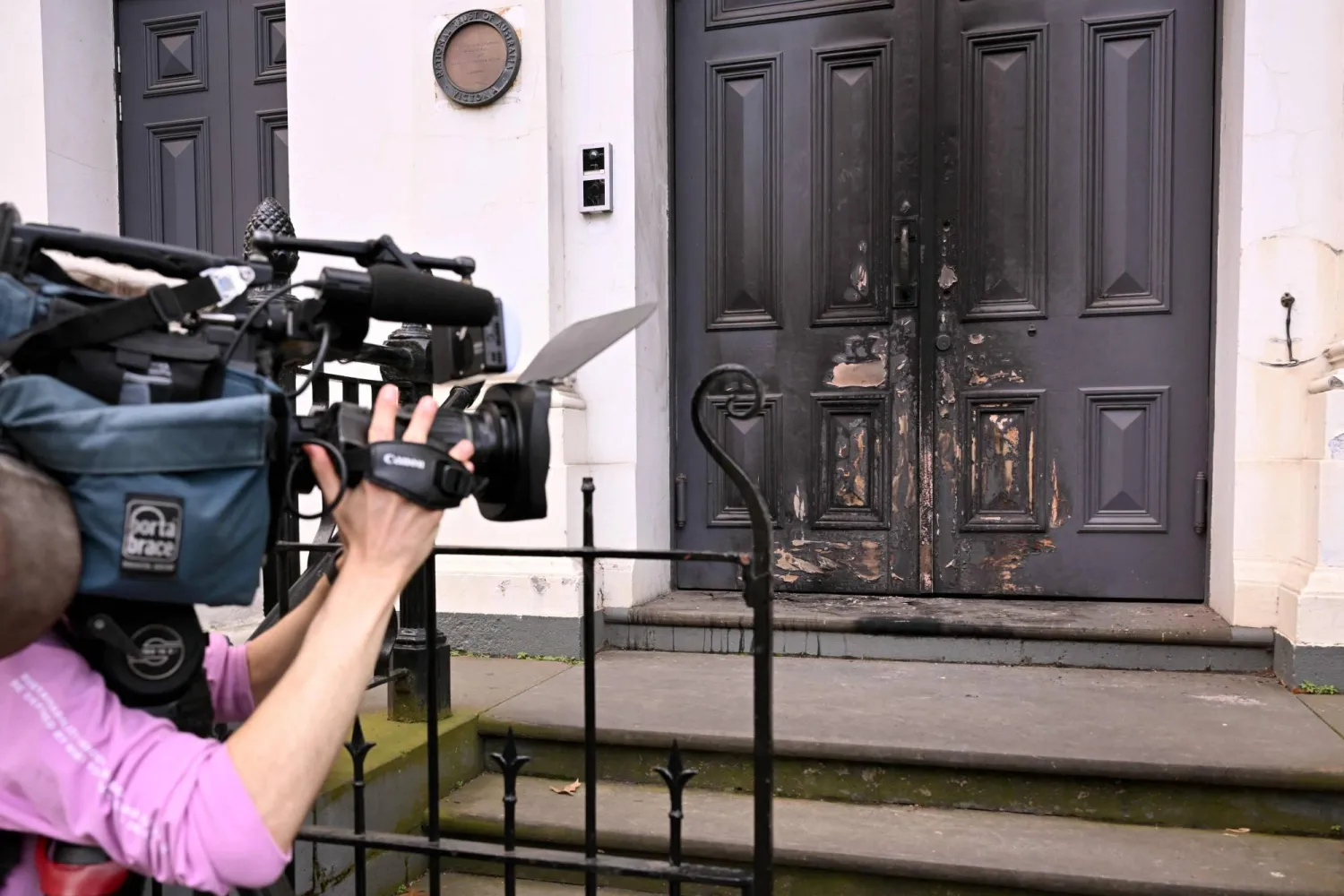Australian police have charged a man in connection with an alleged arson attack on a Melbourne synagogue with worshippers in the building, the latest in a series of incidents targeting the nation's Jewish community.
There were no injuries to the 20 people inside the East Melbourne Synagogue, who fled from the fire on Friday night. Firefighters extinguished the blaze in the capital of Victoria state.
Australia has experienced several antisemitic incidents since the start of the Israel-Gaza war in October 2023.
Counterterrorism detectives late on Saturday arrested the 34-year-old resident of Sydney, capital of neighboring New South Wales, charging him with offences including criminal damage by fire, police said. The man, whom authorities have not identified, was due to face court on Sunday.
"The man allegedly poured a flammable liquid on the front door of the building and set it on fire before fleeing the scene," police said in a statement, according to Reuters.
Authorities are investigating whether the synagogue fire was linked to a disturbance on Friday night at an Israeli restaurant in Melbourne, in which one person was arrested for hindering police.
The restaurant was extensively damaged, according to the Executive Council of Australian Jewry, an umbrella group for Australia's Jews.
It said the fire at the synagogue, one of Melbourne's oldest, was set as those inside sat down to Sabbath dinner.
Israeli President Isaac Herzog went on X to "condemn outright the vile arson attack targeting Jews in Melbourne’s historic and oldest synagogue on the Sabbath, and on an Israeli restaurant where people had come to enjoy a meal together".
"This is not the first such attack in Australia in recent months. But it must be the last," Herzog said.
Israeli Prime Minister Benjamin Netanyahu described the incidents as "severe hate crimes" that he viewed "with utmost gravity". "The State of Israel will continue to stand alongside the Australian Jewish community," Netanyahu said on X.
Australian Prime Minister Anthony Albanese late on Saturday described the alleged arson, which comes seven months after another synagogue in Melbourne was targeted by arsonists, as shocking and said those responsible should face the law's full force.
"My Government will provide all necessary support toward this effort," Albanese posted on X.









